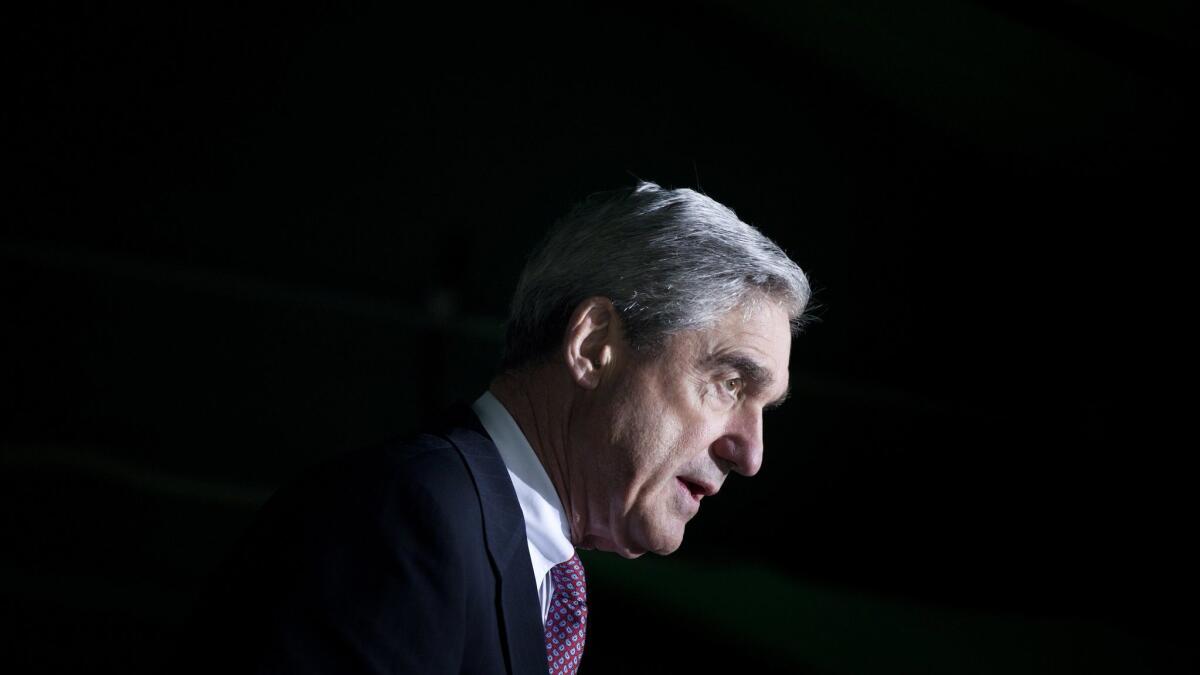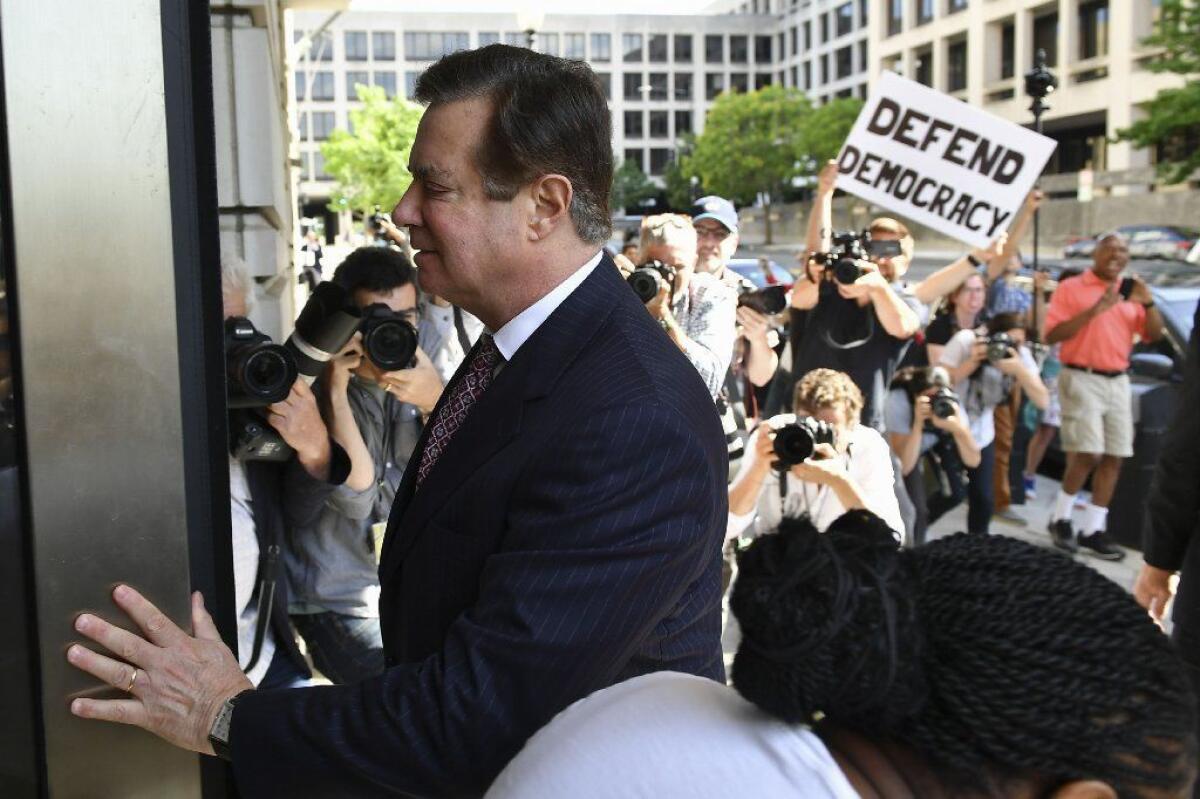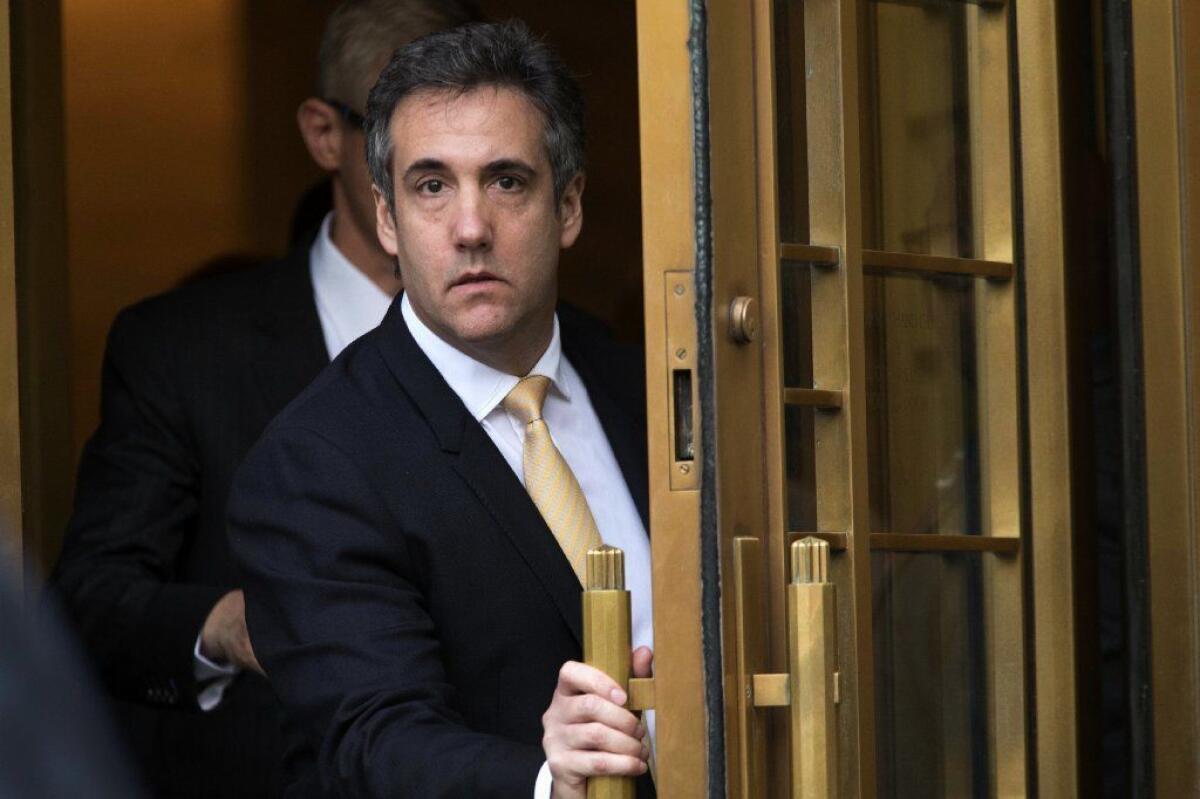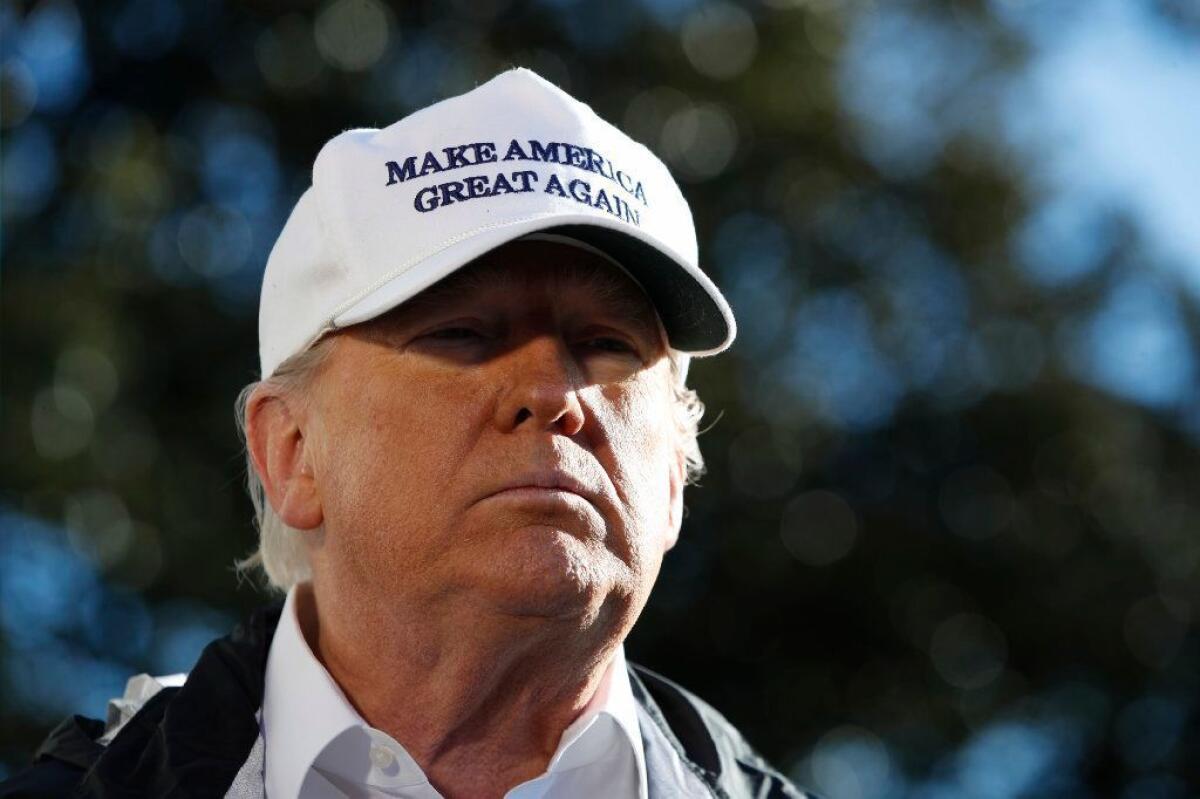What don’t we know about the Russia investigation?

- Share via
Reporting from Washington — Sometimes it feels as though the Russia investigation led by special counsel Robert S. Mueller III has been one bombshell after another. He’s successfully prosecuted some of President Trump’s closest aides and provided a detailed blueprint of Moscow’s attempts to interfere in U.S. politics.
But there’s still a lot we don’t know about the investigation, and some of the biggest questions of the case remain unanswered. Here’s where major issues in the case stand and what we’re still waiting to learn.
What exactly was Moscow doing during the 2016 campaign?
This story line is the clearest part of Mueller’s investigation at this point since his team has used indictments to outline in detail a two-pronged effort by Russia to interfere with the U.S. election and boost Trump’s candidacy.
The first involved the Internet Research Agency, a so-called troll farm based in St. Petersburg, Russia, that spread misinformation on social media.
The second utilized officers of the GRU, Russia’s military intelligence agency. They hacked Democratic Party emails and, posing as a Romanian hacker, provided them to WikiLeaks. The messages were released at several points during the campaign, starting shortly before the Democratic National Convention and continuing into the final weeks before the election, dominating news coverage at key moments.
Was there a connection between WikiLeaks and Trump?
It’s clear that Trump was eager to capitalize on WikiLeaks during the campaign, even though considerable evidence existed at the time that the emails being released by the organization had been hacked by Russian operatives. Whether a more conspiratorial connection existed is an open question.
Most attention has centered on Roger Stone, a longtime advisor to Trump, who may have tried to contact WikiLeaks. According to a draft court filing prepared by Mueller’s office, Stone asked Jerome Corsi, a right-wing writer, to reach out to the organization.
The filing does not say whether that effort was successful, and Corsi and Stone have denied any wrongdoing. But Mueller appears to have been building a criminal case involving WikiLeaks, including grand jury testimony from Stone’s associates.

What was Paul Manafort trying to do?
An important and unexpected revelation became public a few days ago when defense lawyers for Manafort, Trump’s former campaign chairman, inadvertently disclosed that prosecutors believed he provided polling data to a Russian colleague in Ukraine. The colleague, Konstantin Kilimnik, has been accused of having ties to Russian intelligence.
Manafort, who was convicted last year of bank fraud and tax evasion involving his work as an overseas political consultant, has denied any wrongdoing related to the election. But we know prosecutors began investigating him because they suspected he might have served as a back channel to Russia during the campaign. And we know Manafort was working for Trump for free at a time when Manafort was deeply in debt.
Did the polling data find their way into the hands of Russian military intelligence or the Internet Research Agency? And was that Manafort’s intention in providing the information to Kilimnik? He hasn’t explained his actions.
What else is Rick Gates telling prosecutors?
Gates worked for Manafort in Ukraine and later served as his deputy on Trump’s campaign. He testified against Manafort during his trial last year, providing the jury with detailed information on a scheme to avoid taxes and obtain fraudulent mortgages. But prosecutors haven’t moved forward with sentencing Gates, who pleaded guilty to lying and conspiracy. That suggests Gates’ cooperation with the investigation hasn’t ended.
It’s unclear what he’s been telling the special counsel’s office, but Gates could shed light on a variety of issues. Not only did he serve at top levels of Trump’s campaign, but he also worked for Trump’s inaugural committee, which is reportedly under investigation as well.
Could the Trump Tower meeting lead to charges?
One of the most infamous episodes to come to light during the investigation was a meeting at Trump Tower in New York a few weeks before the Republican convention. It involved top campaign officials and a Russian lawyer who had promised to provide damaging information about Hillary Clinton. Before accepting the meeting, Donald Trump Jr. was told by an intermediary that the offer was backed by the Russian government.
“I love it,” he responded.
But the encounter has not been referred to in any of the court filings from Mueller’s office, and no one has been charged in connection with it. (The Russian lawyer has been charged with obstruction in a separate investigation involving money laundering.)
Among the investigation’s unanswered questions: Will Mueller determine that any laws were broken with that meeting? And will he confirm that the meeting actually represented a quasi-official outreach by the Russian government?

What about that plan for a Trump Tower in Moscow?
Michael Cohen, Trump’s longtime lawyer and fixer, pleaded guilty to lying to Congress about his pursuit of a Moscow real estate deal that had been a goal of Trump’s for decades. He admitted to speaking with a Russian government office about the proposal, which he previously had denied, and downplayed how often he discussed the initiative with Trump or his family. Cohen had claimed the idea was abandoned before the Iowa caucuses in January 2016, when it actually remained in the works until after Trump secured the Republican nomination.
The disclosure shed new light on Trump’s push for closer relations with Moscow while he was a presidential candidate — his personal business would have benefited. But it’s unclear how the proposal might factor into other questions involving the election: Did Russians wield some kind of financial leverage over Trump? Was the project discussed in conjunction with Moscow’s support for Trump’s candidacy?
Did anyone else lie to Congress?
Cohen’s guilty plea could be an ominous sign for others who have testified on Capitol Hill. Democrats say they believe some people who appeared before the House Intelligence Committee weren’t honest with lawmakers, and they want to provide the full transcripts to Mueller. Since the special counsel has already proved willing to press charges when people lie to Congress, more charges could be on the way if prosecutors decide there are additional crimes.

Did the president obstruct justice?
We know that Mueller has been examining whether Trump obstructed justice by trying to influence the outcome of the Russia investigation. So far that review hasn’t produced any criminal charges or public statements from the special counsel implicating the president.
This part of the investigation could end up being one of the most serious threats to Trump’s presidency. Obstruction was one of the charges against President Clinton when he was impeached. President Nixon was expected to face the same charge before he resigned, avoiding impeachment.
Some of the key episodes that could factor into an obstruction case are already public knowledge, most notably Trump’s decision to fire James B. Comey as FBI director and his subsequent explanation that “this Russia thing” was on his mind at the time.
White House lawyers argue that a president can’t be accused of obstruction for acts that fall within his constitutional powers, including firing senior officials.
Twitter: @chrismegerian
More to Read
Get the L.A. Times Politics newsletter
Deeply reported insights into legislation, politics and policy from Sacramento, Washington and beyond. In your inbox three times per week.
You may occasionally receive promotional content from the Los Angeles Times.











